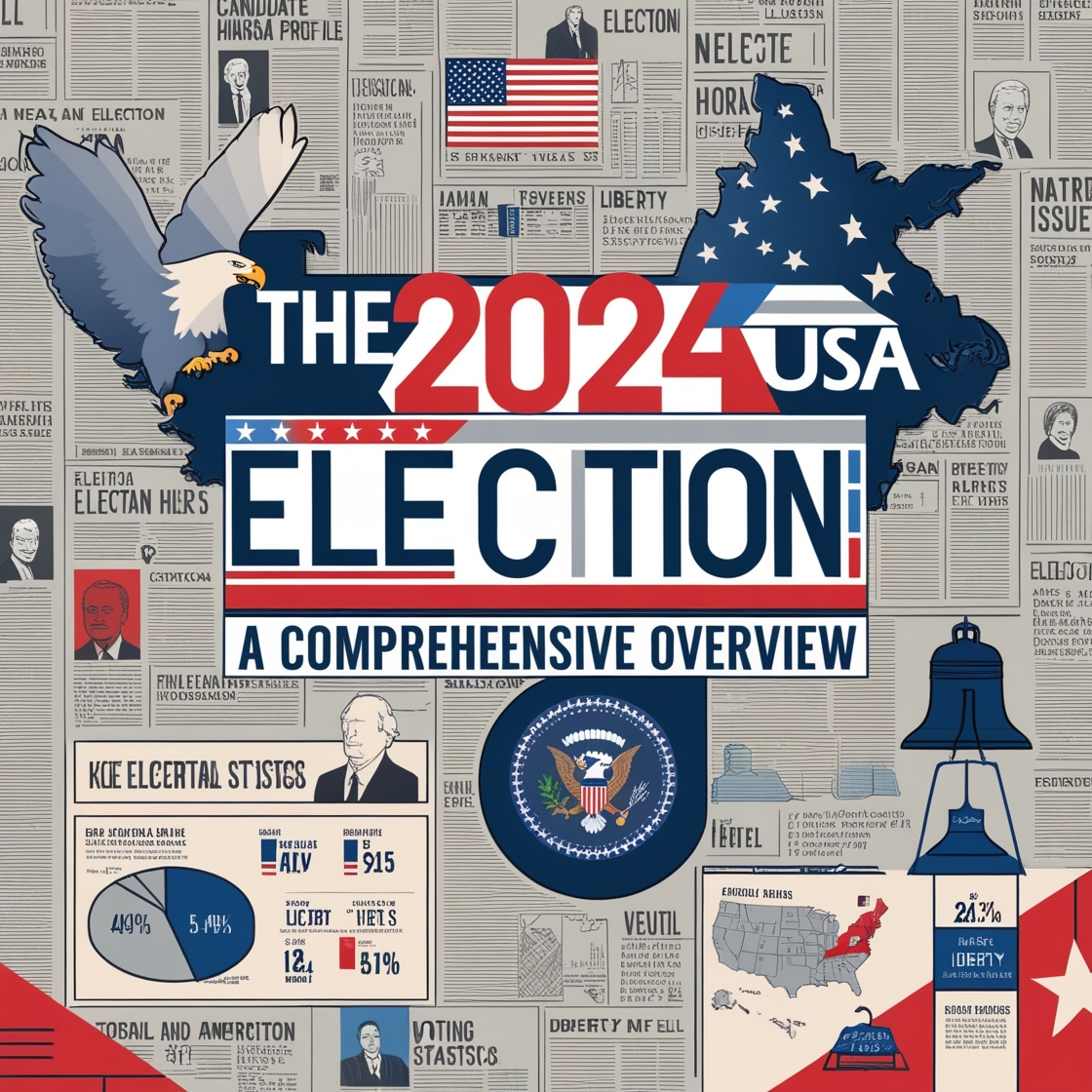As the 2024 USA election approaches, the stakes are higher than ever. This election will not only determine the next President but also influence the future direction of the nation. With significant issues at play and a diverse array of candidates, voters are gearing up for what promises to be a contentious and pivotal election. In this article, we will explore the political landscape, key issues, candidate profiles, and essential voter information, along with a detailed FAQ section to address common inquiries.
The Political Landscape
Historical Context
The 2024 election occurs in a backdrop of heightened political polarization. Following the contentious 2020 election and the subsequent events surrounding the January 6 Capitol riot, political discourse in the U.S. has become increasingly charged. Economic challenges, public health crises, and social movements have shaped voter sentiment, leading to heightened engagement and activism.
Major Parties and Candidates
The two primary parties—Democratic and Republican—are poised to present their candidates to the electorate.
Democratic Party:
President Joe Biden is seeking re-election, promoting his administration’s achievements, including economic recovery measures, healthcare expansions, and climate initiatives. His campaign focuses on unity and continuing progress.
Republican Party:
Former President Donald Trump remains a significant figure, positioning himself as a champion of conservative values. Other candidates like Florida Governor Ron DeSantis and former United Nations Ambassador Nikki Haley are also in the running, each bringing unique platforms that emphasize traditional Republican ideals, economic growth, and national security.
Key Issues Influencing Voters
1. The Economy
Economic conditions will be at the forefront of voters’ minds. Key concerns include inflation, job creation, and the overall health of the economy post-pandemic. Candidates will need to present clear, actionable plans to address these issues to resonate with voters.
2. Healthcare
Healthcare remains a critical issue, with debates surrounding the Affordable Care Act, prescription drug pricing, and access to mental health services. Candidates’ positions on healthcare can significantly influence their appeal to a broad range of voters.
3. Climate Change
As climate change becomes an increasingly pressing global issue, voters—especially younger ones—are looking for candidates who prioritize sustainability and present comprehensive climate action plans.
4. Social Issues
Issues related to social justice, including racial equality, LGBTQ+ rights, and immigration reform, are vital to many voters. Candidates’ stances on these issues will likely influence their support, particularly among progressive and minority voters.
Voter Trends to Watch
1. Youth Engagement
Young voters are expected to play a crucial role in the 2024 election. Candidates who effectively engage this demographic through social media and policies addressing their concerns, such as education and climate change, may gain a significant advantage.
2. Suburban Voters
Suburban areas have emerged as battlegrounds, with shifts in voter sentiment that could influence election outcomes. Candidates will need to address suburban concerns, including education, public safety, and housing affordability.
3. Minority Voter Turnout
Mobilizing minority voters is essential for both parties. Understanding and addressing the unique challenges faced by these communities can help candidates build more inclusive platforms.
Conclusion
The 2024 USA election promises to be a defining moment for the nation. As candidates emerge and campaign strategies evolve, understanding the key issues and voter dynamics will be essential for success. By addressing economic concerns, healthcare, climate change, and social justice, candidates can connect more effectively with voters and shape the future of American politics.
With the stakes this high, it’s crucial for citizens to stay informed, engage in discussions, and make their voices heard at the polls. Every vote matters, and active participation is vital for a thriving democracy.
FAQs About the 2024 USA Election
1. When is the 2024 USA election?
The election is scheduled for Tuesday, November 5, 2024.
2. Who are the main candidates running in the 2024 election?
President Joe Biden is the Democratic candidate, while Donald Trump is a leading Republican candidate, along with Ron DeSantis and Nikki Haley.
3. What are the key issues in the 2024 election?
Key issues include the economy, healthcare, climate change, and social justice.
4. How can I register to vote in the 2024 election?
You can register online, by mail, or in person, depending on your state’s regulations. Visit your state’s election office website for more details.
5. What is the importance of voter turnout in this election?
High voter turnout is crucial for a representative democracy. It can lead to more balanced election outcomes and ensures diverse perspectives are heard.
6. How do I stay updated on the election?
Follow reputable news sources, subscribe to election updates, and engage in local political discussions.
7. What role does early voting play in the election?
Early voting increases accessibility, reduces lines on Election Day, and can help boost overall voter turnout.
8. How can social media influence the 2024 election?
Social media shapes public opinion and mobilizes voters. Candidates use these platforms for outreach and engagement.
9. What is the Electoral College and how does it work?
The Electoral College consists of representatives from each state who formally elect the President and Vice President. A candidate needs 270 electoral votes to win.
10. How can I get involved in the election process?
You can register to vote, volunteer for campaigns, attend town hall meetings, and advocate for issues you care about.



